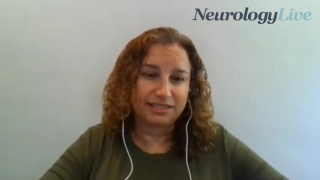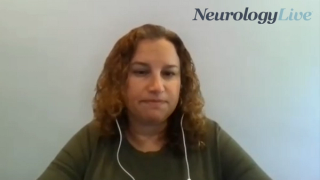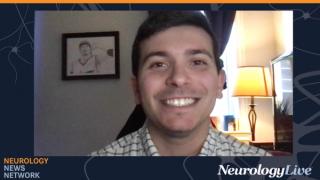
MS and Demyelinating Disorders
Latest News
Latest Videos
CME Content
More News

The chief of neurology and codirector of the neuroscience Center at the Children's Hospital of Philadelphia, spoke about the wellbeing of pediatric patients with MS in reference to her presentation at ECTRIMS 2022. [WATCH TIME: 4 minutes]

The assistant professor of medicine at University of Toronto, and neurologist at St. Michael's Hospital spoke about the process of changing or beginning treatment with a variety of disease-modifying therapies in multiple sclerosis. [WATCH TIME: 4 minutes]

The associate professor of neurology at the Cleveland Clinic Lerner College of Medicine offered insight on her presentation at ECTRIMS 2022 looking at 2-stage models to better understand heterogeneous treatment effects of MS DMTs. [WATCH TIME: 6 minutes]

Here's some of what is coming soon to NeurologyLive® this week.

The founder and executive director of the Sumaira Foundation discussed her experience living with NMOSD and the global organization she created to help patients with the same condition. [WATCH TIME: 6 minutes]

Test your neurology knowledge with NeurologyLive®'s weekly quiz series, featuring questions on a variety of clinical and historical neurology topics. This week's topic is neuromuscular disorders.

Take 5 minutes to catch up on NeurologyLive®'s highlights from the week ending November 11, 2022.

The chief of neurology and codirector of the neuroscience Center at the Children's Hospital of Philadelphia spoke about her presentation at ECTRIMS 2022 on the treatment of pediatric MS. [WATCH TIME: 5 minutes]

More than half of the cohort achieved no evidence of disease activity and few patients showed disability progression after 48 weeks of treatment with ocrelizumab.

Available neurodegenerative disease treatments are generally unsafe and ineffective at penetrating the blood-brain barrier, though the use of nanoparticles can provide improved penetration and exert a neuroprotective effect.
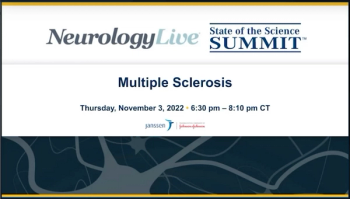
Chaired by Robert T. Naismith, MD, of Washington University in St. Louis, the presentations also feature Salim Chahin, MD, MSCE; Anne H. Cross, MD; Gregory F. Wu, MD, PhD; and Matthew R. Brier, MD, PhD. [WATCH TIME: 1 hour, 55 minutes]

The senior consultant for the department of neurology at the National Neuroscience Institute discussed a report on two patients who developed an uncommon adverse event of late-onset neurotropenia after anti-CD20 therapy treatment. [WATCH TIME: 8 minutes]

The Palatucci Advocacy Leadership Forum, or PALF, sponsored by the American Academy of Neurology, gives neurologists and trainees tools to successfully advocate for their ideas and develop their identity as physician advocates.

The clinical research director of the UCSF Multiple Sclerosis Center provided perspective on several analyses from the N-MOmentum trial that highlight the clinical use of biomarkers in NMO and NMOSD.
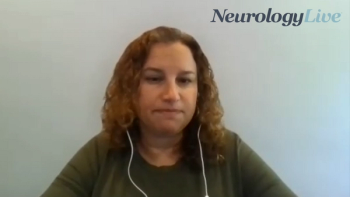
The executive vice principal of advocacy and healthcare access at the National MS Society offered a brief overview of the Inflation Reduction Act of 2022 and how it relates to the economic impact faced by patients with MS. [WATCH TIME: 5 minutes]
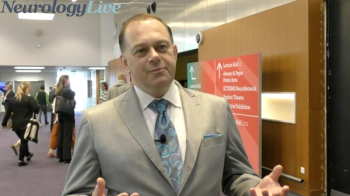
The clinical research director of the UCSF Multiple Sclerosis Center provided perspective on the importance of serum neurofilament light and how it can be used in the management of patients with NMOSD. [WATCH TIME: 3 minutes]

By leveraging digital technologies, the single-arm ARTIOS study will provide unique and comprehensive data that may enrich treatment outcomes for patients with relapsing multiple sclerosis.

Federica Picariello, PhD, postdoctoral researcher, psychologist, King's College, London, spoke about fatigue mechanisms in patients with MS based on presentations from the 2022 ECTRIMS Congress.

The staff neurologist at the Mellen Center for MS Treatment and Research at Cleveland Clinic spoke about her presentation from ECTRIMS 2022 on teleneurology and its utilization as a tool to make care more accessible to patients with MS. [WATCH TIME: 7 minutes]

Acting as an advocate is meaningful to neurologists because it speaks to their inner core—or their “why.” Neurologists have the agency to make this world a better place while working as a neurologist and an advocate at many levels.

Here's some of what is coming soon to NeurologyLive® this week.

The staff neurologist at the Mellen Center for MS Treatment and Research at Cleveland Clinic, spoke about her presentation on teleneurology being a beneficial healthcare tool for patients with MS at ECTRIMS 2022. [WATCH TIME: 7 minutes]

Test your neurology knowledge with NeurologyLive®'s weekly quiz series, featuring questions on a variety of clinical and historical neurology topics. This week's topic is headache and migraine.
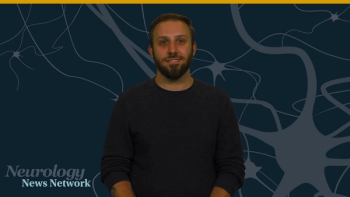
Neurology News Network for the week ending November 5, 2022. [WATCH TIME: 3 minutes]

Take 5 minutes to catch up on NeurologyLive®'s highlights from the week ending November 4, 2022.











